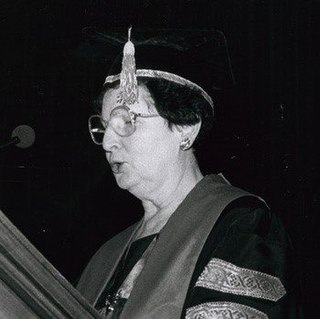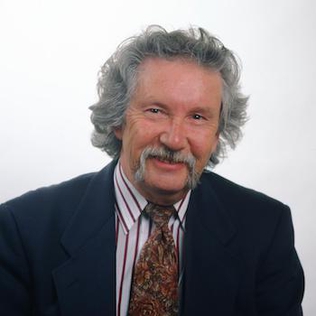
Fairleigh Dickinson University is a private university with its main campuses in the U.S. state of New Jersey. Founded in 1942, Fairleigh Dickinson University currently offers more than 100 degree programs to its students. In addition to its two campuses in New Jersey, the university also has a campus in Canada, a campus in the United Kingdom, and an online platform. Fairleigh Dickinson University is New Jersey's largest private institution of higher education, with over 12,000 students.

Payame Noor University is a large public university in Iran, with its headquarters in Tehran. Established in 1988, is a legal body under the Ministry of Science, Research and Technology. Payame Noor means "the message of light" in Persian.

Springfield College is a private college in Springfield, Massachusetts. The institution confers undergraduate and graduate degrees. Known as the birthplace of basketball, the sport was invented there in 1891 by a Canadian-American instructor, James Naismith. The college's philosophy of "humanics... calls for the education of the whole person—in spirit, mind, and body—for leadership in service to others." It is symbolized by an inverted triangle surrounding a lamp of learning.
Celia Elizabeth (Betsy) Hoffman was Executive Vice President and Provost of Iowa State University from 2007-2012, where she remains as professor of economics. From 2000 to 2005, she was President of the University of Colorado System, where she is President Emerita. She is also a Senior Distinguished Fellow at the Searle Center on Law, Regulations, and Economic Growth at Northwestern University School of Law, and serves on numerous for-profit and non-profit Boards. She served on the National Science Board from 2002-2008. Her published research is in the areas of Experimental economics, Cliometrics, and Behavioral Economics.
Doreen Kimura was a Canadian psychologist who was professor at the University of Western Ontario and professor emeritus at Simon Fraser University. Kimura was recognized for her contributions to the field of neuropsychology and later, her advocacy for academic freedom. She was the founding president of the Society for Academic Freedom and Scholarship.

Rutgers University Press (RUP) is a nonprofit academic publishing house, operating in New Brunswick, New Jersey under the auspices of Rutgers University.
Michael Kelway Oliver was a Canadian academic, political organizer and the sixth president of Carleton University in Ottawa, Ontario, Canada.
Douglas Northrop Jackson II was a Canadian psychology professor best known for his work in human assessment and psychological testing.

The State University of New York Upstate Medical University is a public medical school in Syracuse, New York. Founded in 1834, Upstate is the 15th oldest medical school in the United States and is the only medical school in Central New York. The school is an upper-division transfer and doctoral university with degree-granting programs in the Norton College of Medicine, College of Nursing, College of Health Professions, and the College of Graduate Studies. The university is part of the State University of New York (SUNY) system.

The Higher Education Quality Council of Ontario (HEQCO) is an provincial agency funded by the Ontario Ministry of Colleges and Universities (MCU). The goal of the agency is to provide recommendations for improving quality, accessibility, inter-institutional transfer, system planning, and effectiveness in higher education in Ontario. The Council was founded in 2005 through the Higher Education Quality Council of Ontario Act.
Robert James Sharpe, FRSC is a Canadian lawyer, author, academic, and judge. He was dean of the University of Toronto Faculty of Law from 1990 to 1995 and a judge of the Court of Appeal for Ontario from 1999 to 2020.
Dr. Patricia A. Demers, is a Canadian humanist and academic. She was the first female president of the Royal Society of Canada serving from 2005 to 2007.

DHA Suffa University (DSU) is a non-profit private sector university named after Suffah of Masjid-e-Nabwi. It is located in the Phase VII (extension) of Defence Housing Authority, Karachi, in Sindh, Pakistan.
The School of Public Policy and Administration (SPPA) is the public policy school of Carleton University in Ottawa, Ontario, Canada. Established in 1953, it is Canada's oldest graduate school in the field of policy studies and public management. Since its establishment, it has produced several prominent leaders within the Canadian public and non-profit sectors, and has led research activities in this area.
Ricardo Duchesne is a Puerto Rican-born Canadian historical sociologist and former professor at the University of New Brunswick. His main research interests are Western civilization, the rise of the West, and multiculturalism. Duchesne's views on immigration and multiculturalism have been described as racist and white nationalist. He has denied being a racist to the mainstream press, but has described himself as being "the only academic in Canada, and possibly the Western world, who questions the ideology of diversity while advocating white identity politics."
Susan J. Lederman is a Canadian experimental psychologist. She is a professor emerita in the Department of Psychology at Queen's University in Kingston, Ontario, Canada. She is recognized for her contributions to the field of haptics.

Eva Kushner is a Canadian scholar of Comparative and French, Renaissance, and Canadian literature. She was the President of Victoria University in 1987. In 1997, she was made an officer of the Order of Canada. She was the first woman to be a university president in Ontario, Canada.
Maya Shatzmiller is a historian whose scholarship focusses on the economic history of the Muslim world. She became a Fellow of the Royal Society of Canada in 2003. She received her PhD from the University of Provence in 1973, and was a visiting scholar at the Institute for Advanced Study in 1992. Shatzmiller is a professor of history at the University of Western Ontario.
Gregory W. Fowler is an American academic administrator serving as president of the University of Maryland Global Campus. He was previously president of Southern New Hampshire University's Global Campus.

Rodney John Charles Preece was a British-Canadian political philosopher and historian of animal rights and vegetarianism. He was professor emeritus in the Department of Political Science at Wilfrid Laurier University. Preece authored and edited 19 books on topics including animal rights and welfare, vegetarianism, German politics, socialization in Europe, and political theory.









